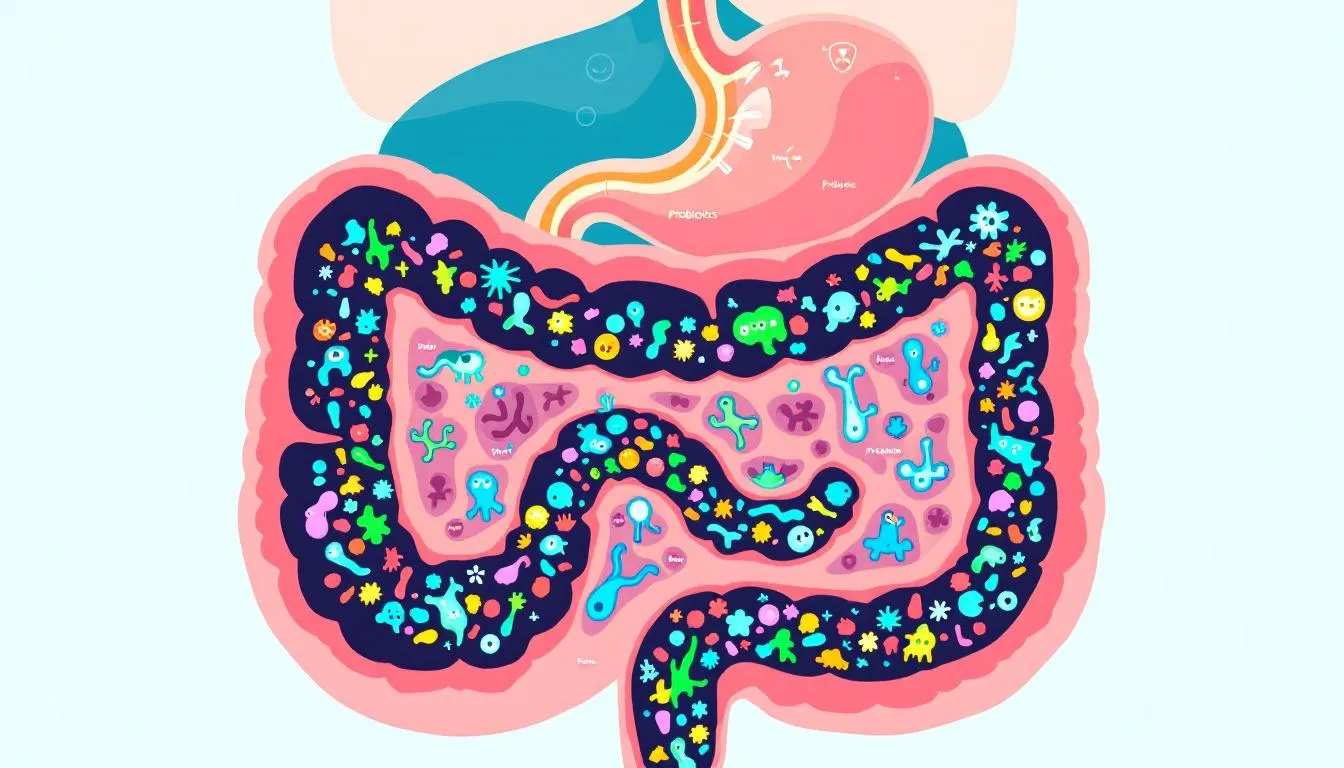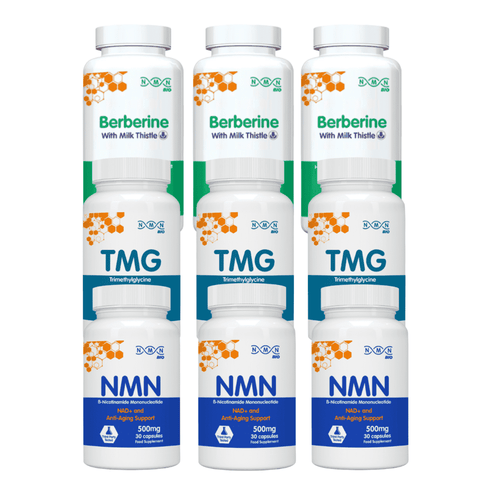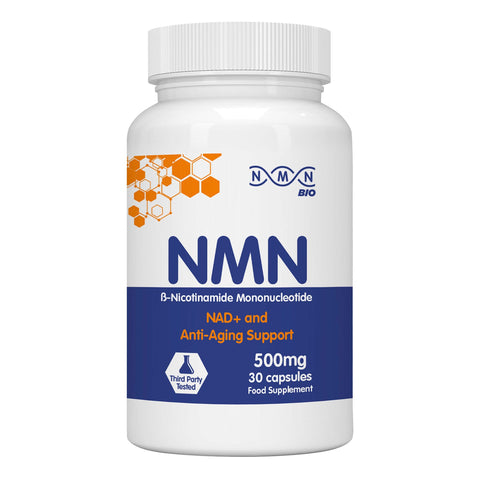Top 10 Best Supplements for Shift Workers: Boost Energy and Improve Sleep


Shift workers often face sleep issues and low energy. This article reviews the best supplements for shift workers to help improve sleep and boost energy. Discover which supplements can support your demanding schedule.
Key Takeaways
-
Melatonin supplements can help realign circadian rhythms, improving sleep quality for night shift workers when taken correctly.
-
Ensuring adequate intake of magnesium, vitamin D, and B vitamins supports relaxation, energy levels, and overall well-being for those working irregular hours.
-
Adaptogens, omega-3 fatty acids, and probiotics can enhance mental health, cognitive function, and gut health, making night shifts more manageable.
Melatonin Supplements
Melatonin is a hormone that plays a crucial role in regulating sleep-wake cycles. Melatonin supplements can significantly aid night shift workers. The body’s internal clock, or circadian rhythm, primarily dictates the release of melatonin, signalling that it’s time to sleep when it gets dark. However, working night shifts can disrupt this natural cycle, making it difficult to fall asleep during the day. The body clock can be affected by these changes.
Taking a melatonin supplement can help realign your circadian rhythms, allowing for better sleep and alertness management. Key points to consider include:
-
Low-dose, fast-release melatonin is particularly recommended for shift workers to avoid confusion in the circadian clock.
-
The correct timing and dosage are crucial for its effectiveness.
-
It’s often recommended to take melatonin about 30 minutes before your desired sleep time.
Combining melatonin with healthy sleep habits maximises its benefits. This includes strategic exposure to bright light and darkness—using blackout curtains during the day and wear sunglasses when you step outside in the morning can help signal your brain that it’s time to sleep medicine.
Though generally safe for short-term use, melatonin’s long-term implications and potential drug interactions require caution. Using melatonin can help you fall asleep faster and enhance overall sleep quality, aiding alertness and energy during night shifts. However, some individuals may also consider sleep medications for similar benefits.
Magnesium for Relaxation
Magnesium is particularly beneficial for night shift workers dealing with insomnia and restless sleep. Magnesium deficiency is common among shift workers and can lead to trouble falling asleep and staying asleep. This mineral plays a vital role in maintaining healthy levels of GABA, a neurotransmitter that aids in relaxation and promotes quality sleep.
Adequate magnesium intake can enhance sleep quality by promoting muscle relaxation and reducing stress. Magnesium helps shift workers combat the physical and mental stress associated with irregular work hours, making it easier to fall asleep and stay asleep.
You can incorporate magnesium into your daily routine through dietary sources like leafy greens, nuts, seeds, and whole grains. Alternatively, magnesium supplements can provide a convenient and effective way to meet your daily requirements. Magnesium improves relaxation techniques and sleep quality, making you feel more rested and ready for night shifts.
Vitamin D for Daytime Alertness

Vitamin D is often dubbed the “sunshine vitamin” because our bodies produce it in response to sunlight exposure. However, night workers often miss out on this vital nutrient due to their unconventional work hours. This deficiency can lead to fatigue and decreased energy levels, making it challenging for night shift workers to stay alert during the night, often leaving them feeling tired and causing them to feel sleepy.
Adequate vitamin D levels are linked to better sleep quality and reduced daytime sleepiness in night shift workers. To combat vitamin D deficiency, it’s essential to include fortified foods in your diet and consider supplementation, particularly of vitamin D3, which is more effective at raising vitamin D levels in the blood.
Incorporating vitamin D into your daily routine can significantly enhance your energy levels and overall well-being. Vitamin D helps maintain a healthy sleep schedule and boosts your immune system, making you more resilient to the demands of night work.
B Vitamins for Energy
B vitamins are a group of essential nutrients that play a crucial role in converting food into energy. Maintaining energy levels is crucial for night shift workers, and B vitamins can significantly help. Deficiencies in these vitamins can lead to fatigue and other health issues, highlighting their importance for overall well-being.
Each B vitamin has a unique role in energy metabolism. For instance, vitamin B12 is essential for red blood cell formation, which helps in the efficient transport of oxygen throughout the body. Similarly, vitamin B6 aids in the production of neurotransmitters that regulate mood and energy levels.
A balanced diet with the following ensures adequate B vitamin intake:
-
Lean meats
-
Eggs
-
Dairy products
-
Leafy greens
-
Legumes
Alternatively, B vitamin supplements can provide a convenient way to meet your daily requirements. B vitamins help maintain energy levels, keeping you alert and focused during night shifts, making energy supplements indispensable.
Adaptogens for Stress Management
Stress management is crucial for night shift workers, and adaptogens can play a significant role in helping the body adjust to the demands of shift work. Adaptogens are plants that help the body manage increased stress and restore balance after stressful events. Not all herbs qualify as adaptogens; they must be nontoxic at normal doses and aid in stress adaptation.
Ashwagandha and Rhodiola are two well-known adaptogens that offer numerous benefits. Ashwagandha is known to alleviate anxiety and depression effectively, while Rhodiola helps diminish fatigue, pain, and symptoms of depression. These adaptogens interact with the hypothalamic-pituitary-adrenal axis, which manages the body’s stress response, making them particularly beneficial for shift workers.
Adding adaptogens to your daily routine can stabilize mood and alleviate mild anxiety and depression. This can improve sleep quality and overall mental health, making adaptogens essential for night shift workers and those managing shift work schedules.
Omega-3 Fatty Acids for Brain Health
Omega-3 fatty acids are essential for maintaining brain health, particularly for night shift workers who need to stay alert and focused during unconventional hours. These fatty acids are crucial for maintaining the structure and function of brain cell membranes, supporting cognitive health.
Studies have shown that omega-3 supplementation can enhance mood and cognitive functions, helping night shift workers maintain focus and alertness. Additionally, omega-3s have anti-inflammatory properties that can help reduce markers of inflammation, which is beneficial for overall mental health.
You can incorporate omega-3s into your diet through foods like fatty fish, flaxseeds, and walnuts. Alternatively, omega-3 supplements can provide a convenient way to meet your daily requirements. Supporting brain health and cognitive function, omega-3s make night shifts more manageable and less stressful.
Probiotics for Gut Health

Gut health is often overlooked but plays a crucial role in overall well-being, especially for night shift workers and non shift workers. Irregular eating patterns common among shift workers can adversely affect gut health. Probiotics are beneficial microorganisms that can help restore microbial balance and maintain digestive health.
Gut health is vital for overall well-being and productivity. Probiotics can help mitigate the adverse effects of shift work on gut health by promoting a balanced diet and supporting human nutrition as part of a healthy lifestyle.
You can add probiotics to your daily routine with foods like yogurt, kefir, and fermented vegetables, or through supplements. Caring for your gut health improves overall well-being and productivity, easing the demands of night shifts.
Caffeine Alternatives for Alertness

Staying alert during night shifts often leads workers to rely heavily on caffeine. However, excessive caffeine intake can disrupt sleep patterns and lead to trouble sleeping and trouble falling asleep, contributing to sleep disturbances. Caffeine alternatives can provide the needed alertness without these negative side effects.
Green tea, for instance, is rich in antioxidants and contains L-theanine, which enhances alertness while reducing stress effects. Yerba maté offers stimulating effects similar to coffee and is packed with antioxidants and vitamins that support overall health.
Mushroom coffee combines traditional coffee with adaptogenic mushrooms, providing lower caffeine levels and potential health benefits. Chicory root coffee mimics coffee’s taste without the caffeine, helping to maintain stable energy levels.
Using these caffeine alternatives helps you stay alert without disrupting sleep patterns, ensuring better overall health.
Why NAD+ Brain Is a Smarter Alternative for Sustained Alertness
Unlike stimulants that spike and crash your energy, NAD+ Brain supports natural, sustained mental performance by nourishing the brain at the cellular level. This scientifically formulated blend works by preserving NAD+ levels in the brain—an essential coenzyme required for energy production and focus.
Here’s why it’s ideal for night shift workers or anyone seeking caffeine-free alertness:
-
🧠 Citicoline, L-Tyrosine, and L-Theanine help sharpen concentration, boost neurotransmitter activity, and reduce stress without overstimulating your system.
-
🌿 Adaptogens like Fisetin and Apigenin support cognitive resilience and calm, making it easier to stay focused without feeling wired.
-
⚡ Vitamin B6 and Zinc contribute to normal brain function and neurotransmitter synthesis, enhancing clarity and memory.
The result? Smooth, focused energy without the crash, jitters, or sleep disruption. It’s not about overstimulation, it’s about fuelling your brain to work better, for longer.
Whether you're working late, studying through the night, or managing a demanding lifestyle, NAD+ Brain is a smart, stimulant-free way to stay sharp and support long-term brain health.
Ask ChatGPT
Hydration with Electrolytes
Proper hydration is crucial for night shift workers, but it’s not just about drinking enough water. Electrolyte supplementation is necessary for preventing conditions like hyponatremia, particularly during prolonged sweating in hot environments. Standard hydration guidelines often overlook the importance of electrolyte replacement, focusing primarily on water intake.
High fluid intake without adequate electrolyte replacement can lead to imbalances, such as low sodium and potassium levels, which are harmful. Incorporating electrolyte-rich drinks or supplements can help maintain the right balance and prevent these issues.
Proper hydration with electrolytes keeps you energized and avoids imbalances, making nights easier to handle night shifts and ensuring a good night’s rest.
Iron for Combating Fatigue
Iron is essential for oxygen transport and energy metabolism, both of which are crucial for endurance, especially for night shift workers. The recommended iron intake is higher for individuals engaging in physical activity compared to those who are sedentary, emphasizing the need for adequate dietary iron.
Optimal iron levels prevent symptoms like weakness and lethargy, common among night shift workers with rigorous activities. B12 and folate are also vital for maintaining healthy red blood cell levels.
A diet rich in iron includes:
-
Red meat
-
Poultry
-
Seafood
-
Beans
-
Fortified cereals
Alternatively, iron supplements can provide a convenient way to meet your daily requirements. Iron helps combat fatigue, keeping you alert and energized during night shifts.
Summary
In summary, night shift work presents unique challenges, but the right supplements can make a significant difference. From melatonin and magnesium to vitamin D and B vitamins, each supplement plays a crucial role in boosting energy levels and improving sleep quality. Adaptogens, omega-3 fatty acids, probiotics, caffeine alternatives, electrolytes, and iron further support overall well-being and productivity.
By incorporating these supplements into your daily routine, you can better manage the demands of night shift work and improve your overall health. Remember, it’s essential to consult with a healthcare professional before starting any new supplement regimen to ensure it’s safe and effective for you.
Take proactive steps today to enhance your energy, improve your sleep, and boost your overall well-being. Your night shifts don’t have to be a battle against your own body—let these supplements support you in achieving better health and a more balanced life.
Frequently Asked Questions
Can I take melatonin every night to help me sleep?
Taking melatonin every night may not be advisable for long-term use; it's best to consult a healthcare professional to assess your specific needs and potential effects.
How can I ensure I'm getting enough magnesium in my diet?
To ensure you’re getting enough magnesium, incorporate magnesium-rich foods such as leafy greens, nuts, seeds, and whole grains into your meals. If needed, consider magnesium supplements to meet your requirements.
Why is vitamin D important for night shift workers?
Vitamin D is crucial for night shift workers as they often experience limited sunlight exposure, leading to a higher risk of deficiency. Supplementing vitamin D can enhance sleep quality and decrease daytime sleepiness, ultimately supporting better overall health.
What are some natural alternatives to caffeine for staying alert?
Green tea, yerba maté, mushroom coffee, and chicory root coffee are effective natural alternatives to caffeine that can help you stay alert without affecting your sleep patterns.
How can I maintain proper hydration with electrolytes?
To maintain proper hydration with electrolytes, incorporate electrolyte-rich drinks or supplements into your routine, which helps prevent imbalances like low sodium and potassium levels. Staying proactive in your hydration strategy is key to overall well-being.
Researched and reviewed by Dr Elena Seranova, Ph.D.
Dr Seranova holds a master's degree in Translational Neuroscience from the University of Sheffield, UK, and a Ph.D in Stem Cell Biology and Autophagy from the University of Birmingham, UK. She is a published author in multiple peer-reviewed journals, including Cell Reports and Developmental Cell.
LEARN MORE!





Leave a comment